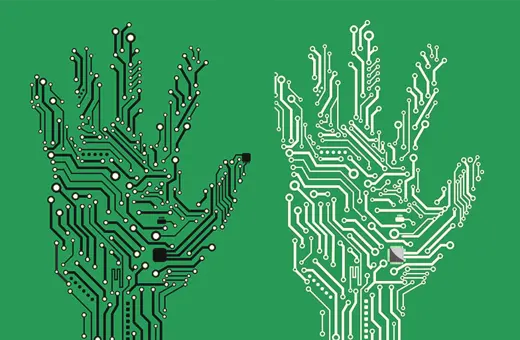In an era of Silicon Valley techno-utopianism, the age-old dream of a universal language, contemplated by thinkers from Dante to Sylvia Pankhurst, has found a new and vibrant home.Yet far from fostering international harmony, real-time speech-to-speech translation tech risks tearing society apart. Philip Seargant explores why the dream of transcending the curse of Babel persists so doggedly, and how it might lead the modern world into a dark future.
A decade after the end of the First World War, the social rights campaigner Sylvia Pankhurst wrote a short book outlining her recipe for a brighter future for humankind. A key ingredient, she argued, was a universal language. According to Pankhurst, the existence of a single world language would
play its part in the making of the future, in which the peoples of the world shall be one people: a people cultured and kind, and civilized beyond today’s conception, speaking a common language, bound by common interests, when the wars of class and of nations shall be no more.
By finding ways to bridge the gap between different languages, by creating more precise and unambiguous ways of expressing ourselves, we would be able, so the conviction has it, to overcome the impulse for war, to improve science, to strengthen our relationships with each other, and ultimately to reach our full potential as rational beings. Yet a hundred years on, Pankhurst’s blueprint for global harmony has yet to come to pass. Globalization might have transformed societies around the world, and communications technologies shrunk our perception of that world – but universal communication, and the world peace it would supposedly bring with it, remains elusive.
___
One of the major motivations for establishing such a language has been the idea that it will lead to a more concordant and amicable world.
___
But then maybe there’s a problem with the basic premise on which Pankhurst’s argument was built. There’s a strong counter-argument to be made that a universal language would not in fact be a catalyst for universal harmony, but something that would instead exacerbate inequality across the globe, privilege certain groups while marginalising others, and ultimately pose a deadly threat to the cultural diversity that’s such a strength for our species.
The dream of a universal language can be traced back to the myth of the Tower of Babel. It picked up momentum particularly in the Middle Ages – Dante, for example, in his De vulgari eloquentia, tried to discover a route back to the ‘original language’ of humankind –and subsequently became a subject of fascination for many scholars during the Renaissance and the Enlightenment. Throughout this history, one of the major motivations for establishing such a language has been the idea that it will lead to a more concordant and amicable world.





















Join the conversation